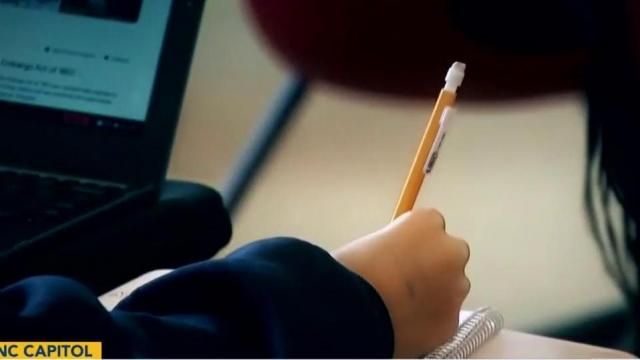Editorial: Dramatic private school voucher expansion still lacks accountability

CBC Editorial: Wednesday, April 3, 2024; #8920
The following is the opinion of Capitol Broadcasting Company
About 72,000 new applications were submitted for North Carolina’s taxpayer-funded private school voucher program – the first time that the vouchers were open to all families regardless of income.
Offers were sent this week to the families of 13,511 new students in the lowest income level – no more than $57,720 annually for a family of four – nearly twice the federal poverty level. If all those do accept them, it will mark a 41% increase in the number of taxpayer-financed voucher students in North Carolina private schools.
Depending on how many of those offers are accepted, there may be some further offers made to the families of students in the next income level – no more than $115,400 for a family of four.
Some facts about North Carolina’s taxpayer-financed private school voucher program:
- There are currently 32,511 students receiving taxpayer funded private school vouchers at a cost of $184.4 million – up from the 25,568 students and $134.6 million in the previous school year.
- While private school voucher backers contend the program opens opportunities to minorities, the overwhelming majority of taxpayer dollars are financing white students at private schools. When the program was launched in the 2014-15 school year, the portion of Black students receiving vouchers was 51%. By the 2019-2020 school year it decreased to 28% and five years later it’s now 19%. Meanwhile the share of white students receiving taxpayer support has grown from 51% five years ago to 64% now.
- The private schools students attend at taxpayer expense don’t measure student progress in the same way the state’s public schools (traditional and charter) must. Voucher private schools can pick a “nationally standardized measure of achievement” of their choosing.
- Teachers at voucher private schools don’t have to have to meet the same qualifications as classroom teachers in public schools.
- Private schools are not required to report information on whether taxpayer-financed students show up at class.
While legislative leaders like to preach about accountability when it comes to using state tax dollars – as they did during the decade-long refusal (until last year) to expand Medicaid – private school vouchers are the exception.
There are no significant measures or reports provided to the state to show how students are performing, what they are learning or even whether they are learning. There is no requirement that EVERY child who qualifies for a voucher can in fact, attend a school of their choice.
Many of these private schools restrict admissions based on the students’ families’ religious beliefs, who the parents are, or whether the student has a disability. Schools ban students of the Jewish or Muslim faiths and only accept those who fit into a Christian worldview.
North Carolina taxpayers should be able to see how their money is being used, whether it is being used as intended and in an effective manner. Schools that accept vouchers should be required to adhere to the same performance standards, accountability for student performance and hiring of faculty as public schools.
Those that don’t want to – that is their choice. But it is not one that should be financed with taxpayer dollars.
Capitol Broadcasting Company's Opinion Section seeks a broad range of comments and letters to the editor. Our Comments beside each opinion column offer the opportunity to engage in a dialogue about this article. In addition, we invite you to write a letter to the editor about this or any other opinion articles. Here are some tips on submissions >> SUBMIT A LETTER TO THE EDITOR









